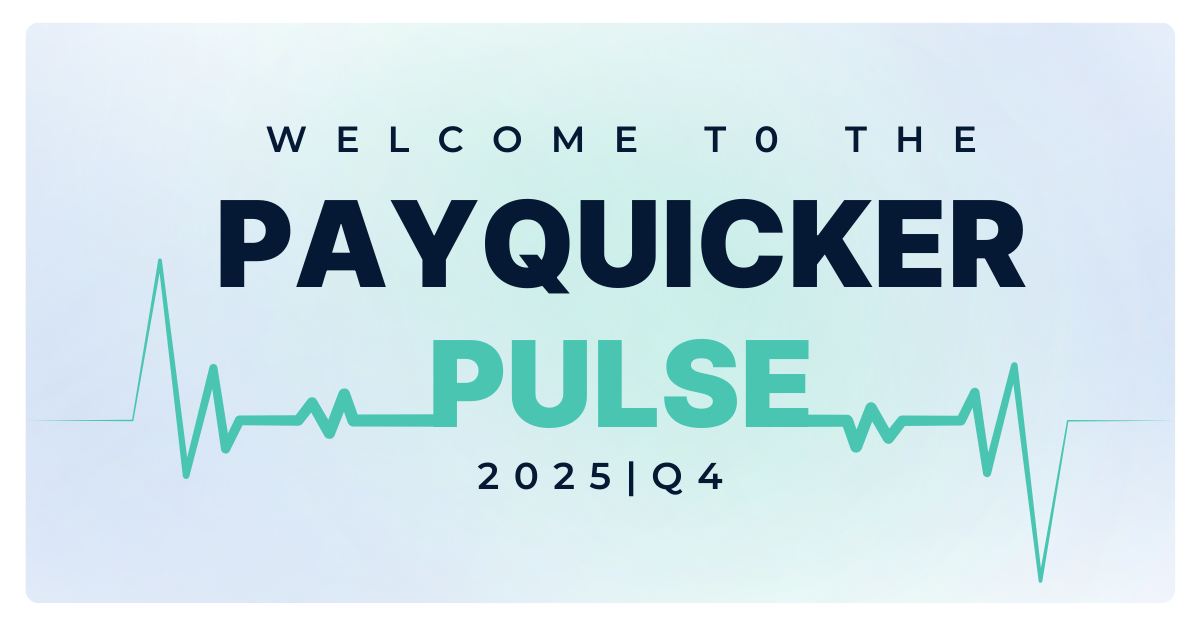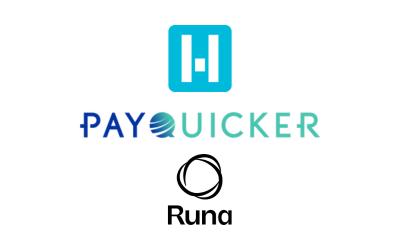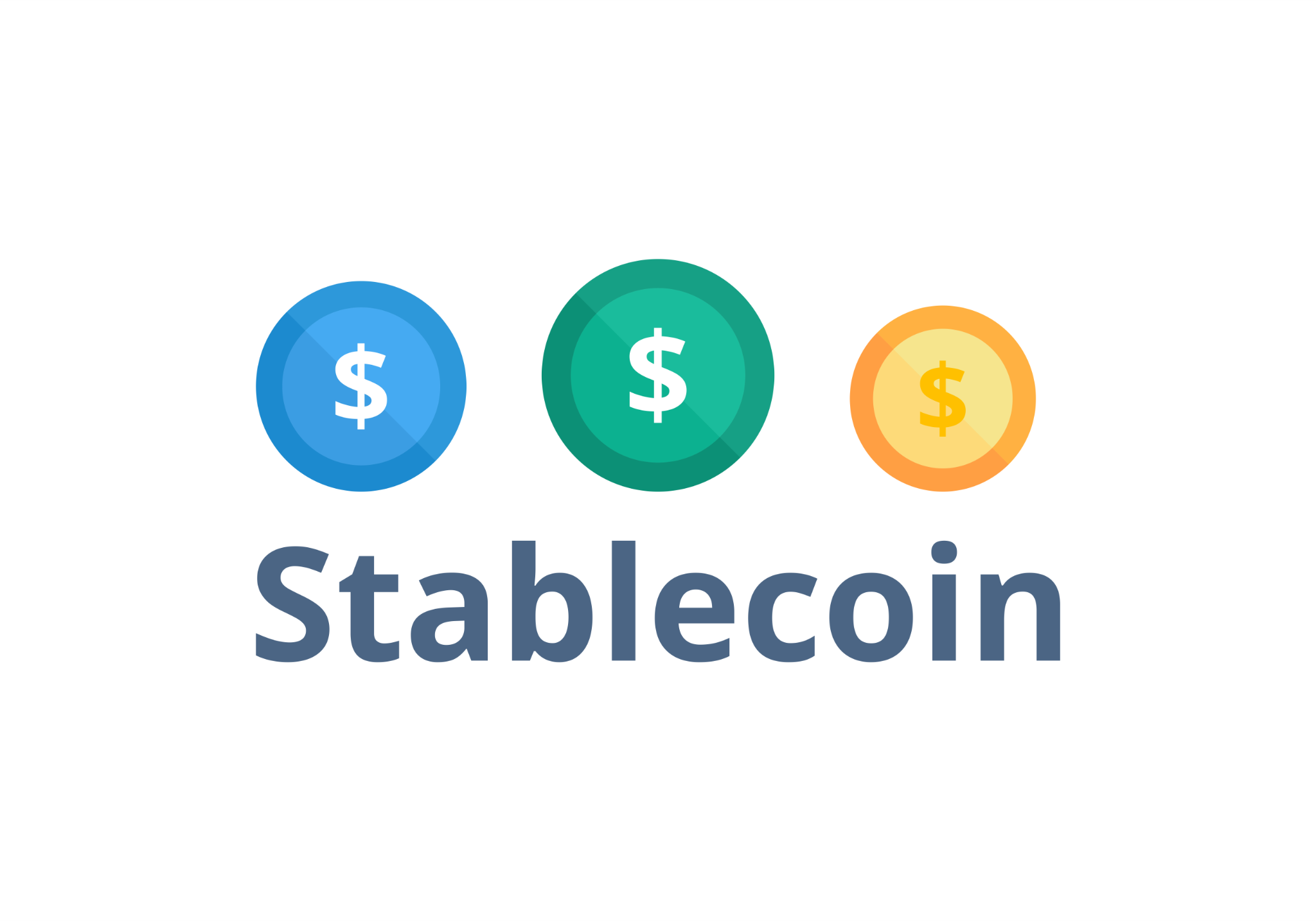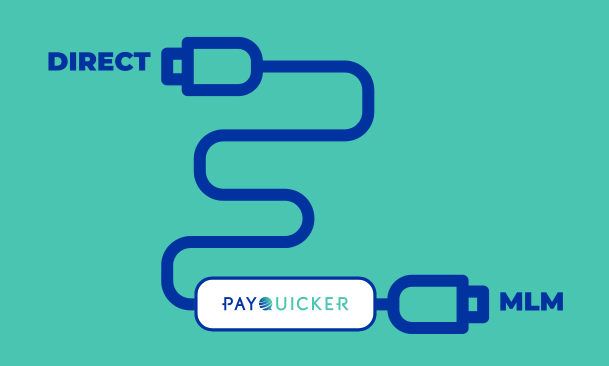How Mass Payments & Payouts Work: From Legacy to Orchestration

Introduction to Mass Payouts
Efficient mass payments are essential for businesses. Mass payouts, which disburse funds to multiple recipients simultaneously, help manage payroll, commissions, and rebates, saving time and reducing administrative work.
The gig economy and cross-border commerce require timely transactions. Efficient mass payments attract talent, manage international operations, and ensure regulatory compliance. Advanced solutions streamline workflows, enhance security, and improve the recipient experience.
Mass payouts are crucial for freelance platforms, direct sales companies, affiliate marketplaces, and many other businesses that work with independent contractors. Organizations conducting global clinical trials or market research also benefit from timely participant compensation.
As businesses expand globally, managing payments across currencies and regulations becomes complex. Solutions like PayQuicker offer various payment methods, compliance support, and integration capabilities, simplifying the process and enhancing efficiency.
How Mass Payouts Work: Legacy vs. PayQuicker
Legacy Mass Payout Process Executing mass payouts traditionally involves several structured steps to ensure the timely and secure distribution of funds to multiple recipients. Here is a general guide to setting up and executing mass payouts using a conventional system:
- Setting Up Your Account
- Create an Account: Register on a mass payout platform, provide necessary business details, and verify your identity to comply with regulatory requirements.
- Configure Payment Preferences: Set up payment preferences, including preferred currencies, payout methods, and recipient onboarding processes.
- Uploading Recipient Information
- Collect Recipient Data: Gather essential information from recipients, such as bank details, email addresses, and specific payout instructions.
- Batch Upload: Use the platform’s batch upload feature to import recipient information via CSV or Excel files, ensuring data accuracy and completeness.
- Allocating Funds
- Fund Your Account: Deposit the total amount required for the payouts into your platform account. Ensure sufficient funds to cover all payments and associated fees.
- Currency Conversion: Convert necessary funds at the platform’s current exchange rates if payouts involve multiple currencies to avoid delays and additional costs.
- Executing the Payouts
- Initiate the Payout: Once recipient data and funds are in place, initiate the mass payout process by selecting the batch of recipients and confirming the total amount to be disbursed.
- Payment Processing: The platform processes the payments, distributing funds through preferred methods such as bank transfers, digital wallets, or prepaid cards.
- Monitoring and Reporting
- Track Payment Status: Monitor the status of each payment in real-time through the platform’s dashboard, ensuring all transactions are completed and addressing any issues.
- Generate Reports: Create detailed reports for each payout batch, including transaction IDs, amounts, and recipient details for auditing and compliance purposes.

The PayQuicker Advantage
PayQuicker eliminates the hassle of the legacy payout process by streamlining and optimizing every step through its advanced solutions, Payouts OS and PQ Portal:
Payouts OS:
- Single Bank Application: Integrate seamlessly with PayQuicker’s REST API and connect to an extensive, secure network of banks and payment rails.
- Turnkey Integration: Orchestrate global payouts within your own environment using intelligent routing algorithms that compare prices, routes, currencies, and payment methods for optimized payout routes.
PQ Portal:
- Instant Payouts: Make instant payouts in local currencies to secure, beneficiary-owned accounts using PayQuicker’s white-label hosted PQ Portal experience.
- Complete Solution: Our comprehensive payment and debit card solution includes program management, offering seamless deployment with a single bank application, API integration, or batch file upload options.
Benefits of PayQuicker:
- Hassle-Free Onboarding: PayQuicker handles the collection of banking information and identity verification/KYC from payees, simplifying the onboarding process.
- Time and Cost Efficiency: Automate the payout process, reducing administrative burdens and operational costs.
- Enhanced Security: Advanced security measures protect against fraud and ensure data privacy.
- Global Reach: Efficiently manage cross-border payments with support for multiple currencies and compliance with local regulations.
- Real-Time Monitoring: Track payments in real-time and generate comprehensive reports for auditing and compliance.
By leveraging PayQuicker, businesses can significantly enhance their mass payout processes, ensuring secure, efficient, and accurate distribution of funds while eliminating the complexities associated with traditional methods.
Key Benefits of Mass Payouts
Implementing a mass payout solution offers several significant advantages that can transform the efficiency and effectiveness of a business’s financial operations. Here are the key benefits:
Time Savings
One of the most substantial benefits of mass payouts is the time saved in processing payments. Traditional payment methods often require individual processing of each transaction, which can be incredibly time-consuming, especially for businesses with a large number of recipients.
Mass payout solutions automate this process, enabling the simultaneous disbursement of funds to hundreds or thousands of recipients in just a few clicks. This automation reduces the administrative burden on staff, allowing them to focus on more strategic tasks that drive business growth.
Cost-Effectiveness
Mass payout platforms often offer more cost-effective solutions compared to traditional banking methods. By consolidating multiple transactions into a single batch, businesses can reduce transaction fees and administrative costs.
Additionally, many mass payout services provide competitive exchange rates for international payments, further lowering the cost of cross-border transactions. This cost efficiency is particularly beneficial for businesses that need to make frequent or high-volume payments.
Enhanced Security
Security is a critical concern when handling financial transactions. Mass payout solutions typically come with advanced security features that protect both the business and the recipients.
These features can include encryption, multi-factor authentication, and compliance with international security standards such as PCI DSS (Payment Card Industry Data Security Standard). Enhanced security measures help to prevent fraud, ensure data privacy, and maintain the integrity of the payment process.
Global Reach
In today’s globalized economy, businesses often need to make payments to recipients in different countries. Mass payout platforms facilitate international payments by supporting multiple currencies and providing access to a global network of banking partners. This global reach ensures that businesses can efficiently manage payouts to international freelancers, suppliers, and partners without dealing with the complexities of international banking regulations and currency conversions.
Operational Efficiency
The combined benefits of time savings, cost-effectiveness, enhanced security, and global reach lead to overall operational efficiency. By streamlining the payout process, businesses can improve cash flow management, reduce the risk of errors, and enhance the recipient experience. Efficient payout systems also contribute to better financial planning and forecasting, as businesses can more accurately track and predict their payment obligations.
In summary, adopting a mass payout solution is a strategic move that can significantly enhance a business’s operational efficiency. By leveraging these benefits, companies can focus on their core activities, improve financial management, and maintain a competitive edge in the global marketplace.
Choosing the Right Mass Payout Solution
Selecting the right mass payout solution is crucial for businesses aiming to optimize their payment processes and meet their specific needs. Here are key criteria to consider when choosing a mass payout provider.
Key Criteria for Selecting a Mass Payout Provider
- Fees and Charges:
- Evaluate the transaction fees, setup costs, and any hidden charges associated with the payout provider. Lower fees can significantly reduce operational costs, especially for high-volume transactions.
- International Capabilities:
- Assess the provider’s ability to handle cross-border payments. Look for support for multiple currencies, competitive exchange rates, and a wide network of banking partners to ensure smooth international transactions.
- User Experience:
- A user-friendly interface and intuitive navigation are essential for efficient operation. The platform should offer easy integration with existing business systems, as well as comprehensive customer support.
- Security Measures:
- Ensure the provider adheres to industry-standard security protocols, such as PCI DSS compliance, encryption, and multi-factor authentication. Robust security measures protect against fraud and data breaches.
- Integration Options:
- The ability to integrate seamlessly with your business’s current software and financial systems is critical. Check for API support and compatibility with ERP systems to streamline the payout process.
- Flexibility and Customization:
- Look for solutions that offer customizable payout options to meet unique business requirements, such as scheduling, payment methods, and branding capabilities.
- Customer/Payee Support. Added benefits like multilingual tier-1 customer support makes it even easier for the client as all inquiries, questions, concerns are handled by the payout provider.
Integration with Business Systems
Integrating mass payout solutions with existing business software and systems is essential for achieving operational efficiency and seamless financial management. Proper integration ensures that the payout process is streamlined, reducing manual intervention and minimizing errors. Here’s how mass payouts can be integrated effectively:
Compatibility with ERP and Accounting Software
- ERP Systems:
- Mass payout solutions should be compatible with major Enterprise Resource Planning (ERP) systems like SAP, Oracle, and Microsoft Dynamics. This compatibility allows businesses to automate financial workflows, ensuring that payout data is accurately reflected in the company’s financial records.
- Accounting Software:
- Integration with popular accounting software such as QuickBooks, Xero, and Sage is crucial. This integration enables automatic synchronization of payout transactions, simplifying bookkeeping and financial reporting. Businesses can effortlessly track payments and maintain accurate financial statements.
API Integration
- RESTful APIs:
- Many mass payout platforms offer RESTful APIs, which facilitate smooth integration with various business applications. APIs allow for real-time data exchange between the mass payout solution and other systems, ensuring up-to-date information and efficient processing.
- Customizable Webhooks:
- Webhooks can be used to automate notifications and updates. For instance, when a payout is processed, a webhook can trigger an update in the accounting system, ensuring all records are current without manual input.
Ease of Use
- User-Friendly Dashboards:
- A mass payout solution should provide a user-friendly dashboard that allows businesses to manage integrations easily. The dashboard should offer clear instructions and support for setting up integrations, even for users with limited technical expertise.
- Integration Support:
- Providers often offer dedicated support for integration, including detailed documentation, tutorials, and customer service. This support is invaluable for troubleshooting and ensuring smooth setup.
Operational Efficiency
- Automated Workflows:
- Integration enables automated workflows, reducing the need for manual data entry and minimizing the risk of errors. This automation ensures that payouts are processed accurately and promptly, improving overall operational efficiency.
- Real-Time Data Sync:
- With integrated systems, data synchronization happens in real-time. This real-time sync ensures that financial information across different platforms is always current, aiding in better decision-making and financial planning.
By integrating mass payout solutions with existing business systems, companies can achieve significant operational efficiencies. Seamless integration facilitates accurate financial tracking, reduces administrative burdens, and enhances the overall payout experience for both businesses and recipients. This integration is a critical step towards modernizing financial operations and maintaining a competitive edge in today’s fast-paced business environment.
Global Challenges and Solutions in Mass Payouts
Managing mass payouts on a global scale presents several challenges, including compliance with varying regulations, currency conversion complexities, and adherence to local laws. Addressing these challenges effectively is crucial for businesses to ensure smooth and secure financial transactions worldwide. Here are some common global payout issues and practical solutions to overcome them:
Compliance with International Regulations
- Challenge: Different countries have distinct financial regulations and compliance requirements, making it difficult for businesses to manage payouts across borders.
- Solution: Partner with a mass payout provider that is well-versed in international compliance standards. Such providers ensure that all transactions adhere to local laws and regulations, reducing the risk of legal complications. Utilizing services that offer Know Your Customer (KYC) and Anti-Money Laundering (AML) checks can further enhance compliance.
Currency Conversion
- Challenge: Currency conversion can be a significant issue when dealing with international payouts, as fluctuating exchange rates can impact the amount received by recipients.
- Solution: Choose a payout provider that offers competitive exchange rates and transparent conversion fees. Platforms that support multi-currency accounts allow businesses to hold and disburse funds in various currencies, mitigating the effects of exchange rate volatility. Real-time conversion tools can also provide recipients with accurate payment amounts in their local currency.
Adhering to Local Regulations
- Challenge: Local financial regulations can vary significantly, and failing to comply can result in delays, fines, or blocked transactions.
- Solution: Work with a mass payout solution that has a robust understanding of local regulations and can provide guidance on compliance. Ensure that the platform offers localized payment methods that are compliant with regional requirements. Regularly update and review compliance procedures to keep up with changing laws.
Managing Cross-Border Transactions
- Challenge: Cross-border transactions can be slow and costly, impacting the efficiency of mass payouts.
- Solution: Utilize a mass payout provider with a global network of banking partners to facilitate faster and cheaper cross-border payments. Solutions that offer intelligent payout routing can select the most cost-effective and efficient channels for each transaction, minimizing delays and fees.
Data Security and Privacy
- Challenge: Protecting sensitive financial information during global transactions is critical to prevent fraud and data breaches.
- Solution: Ensure that the mass payout platform employs advanced security measures, such as encryption and multi-factor authentication. Compliance with international data protection standards, such as GDPR, can further safeguard data privacy and security.
By addressing these global challenges with practical solutions, businesses can optimize their mass payout processes, ensuring secure, efficient, and compliant transactions worldwide. Partnering with a reliable mass payout provider like PayQuicker can help navigate these complexities, enabling businesses to focus on their core operations and growth.
Innovative Trends in Mass Payout Technologies
The mass payout industry is evolving rapidly, driven by emerging technologies that promise to enhance efficiency, security, and overall user experience. Two of the most transformative trends in this space are blockchain and artificial intelligence (AI). These technologies are revolutionizing how businesses manage and execute mass payouts, offering new opportunities for growth and innovation.
Blockchain Technology
Blockchain technology is fundamentally changing the landscape of mass payouts. Its decentralized nature ensures transparency, security, and immutability of transactions. Here’s how blockchain is impacting the industry:
- Enhanced Security: Blockchain’s cryptographic algorithms provide a high level of security, reducing the risk of fraud and data breaches. Each transaction is recorded on a distributed ledger, making it nearly impossible to alter or tamper with the data.
- Transparency: Every transaction on a blockchain is visible to all participants in the network, ensuring transparency and traceability. This transparency builds trust among recipients and regulators, as all transactions can be audited in real-time.
- Reduced Costs and Speed: By eliminating intermediaries, blockchain can significantly reduce transaction costs and processing times. This is particularly beneficial for cross-border payments, where traditional methods can be slow and expensive.
Artificial Intelligence (AI)
AI is another game-changer in the mass payout industry. By leveraging AI, businesses can optimize their payout processes and enhance decision-making:
- Predictive Analytics: AI can analyze vast amounts of data to predict payment trends and optimize cash flow management. This helps businesses anticipate payment needs and make informed decisions.
- Fraud Detection: AI-powered algorithms can detect unusual patterns and flag potential fraudulent activities in real-time. This proactive approach enhances security and reduces the risk of financial losses.
- Automation: AI can automate repetitive tasks, such as data entry and transaction processing, improving efficiency and reducing human error. This allows businesses to focus on more strategic activities.
The Potential Impact
The integration of blockchain and AI into mass payout systems holds immense potential for the industry. These technologies can streamline operations, enhance security, and provide valuable insights that drive business growth. Companies that adopt these innovations will likely gain a competitive edge, offering faster, more secure, and cost-effective payout solutions.
Embracing these technologies can help businesses navigate the complexities of global payments, ensuring they remain at the forefront of the industry while delivering superior service to their recipients.
How to Send Mass Payouts: FAQs
To help businesses navigate the complexities of mass payouts, here are answers to some of the most frequently asked questions about the process. This section serves as a quick reference guide, addressing common concerns and providing practical solutions.
What are the fees associated with mass payouts?
- Answer: Fees for mass payouts can vary depending on the provider and the payment methods used. Common fees include transaction fees, currency conversion charges, and possibly setup costs. It’s important to compare providers and choose one that offers competitive and transparent pricing.
How secure are mass payout transactions?
- Answer: Security is a top priority for mass payout providers. Most reputable platforms implement advanced security measures such as encryption, multi-factor authentication, and compliance with international security standards like PCI DSS. These measures help protect sensitive financial data and prevent fraud.
Can mass payouts be customized to fit specific business needs?
- Answer: Yes, many mass payout solutions offer customizable options to meet the unique requirements of different businesses. This can include scheduling flexibility, multiple payout methods (e.g., bank transfers, digital wallets, prepaid cards), and branded payout portals. Customization ensures that the payout process aligns with the business’s operational workflow and recipient preferences.
What are the compliance requirements for international payouts?
- Answer: Compliance requirements can vary significantly across different countries. Businesses must adhere to local regulations, which may include KYC (Know Your Customer) and AML (Anti-Money Laundering) checks. Partnering with a provider experienced in global payouts can help ensure compliance with international laws and reduce the risk of regulatory issues.
How long does it take for recipients to receive their funds?
- Answer: The time it takes for recipients to receive their funds can depend on the payout method and the provider’s processing times. Some methods, like digital wallets and prepaid cards, can provide near-instant access to funds, while traditional bank transfers may take a few days. Providers with efficient processing systems and a strong global network can significantly reduce payout times.
What are the benefits of using a mass payout solution over traditional payment methods?
- Answer: Mass payout solutions offer several advantages over traditional methods, including time savings, cost efficiency, enhanced security, and the ability to handle international payments seamlessly. These solutions automate the payout process, reduce administrative burden, and provide a better experience for both businesses and recipients.
By addressing these common questions, businesses can better understand the mass payout process and make informed decisions about implementing a solution that meets their needs. Using a reliable mass payout platform simplifies financial operations and enhances overall efficiency.

Conclusion
Mass payouts are essential for businesses in today’s global economy. By adopting advanced mass payout solutions, companies can achieve significant time savings, cost efficiency, enhanced security, and seamless international transactions. Understanding the process, benefits, and selecting the right provider are key to optimizing financial operations.
Consider a solution that meets your business needs, ensures compliance, integrates with your systems, and supports multiple payout methods. Providers like PayQuicker offer comprehensive platforms to streamline your payouts, ensuring secure and efficient payments.
Explore PayQuicker’s offerings and book a demo today to transform your business’s payout operations. Enhance your financial management and stay ahead of the competition with more efficient mass payouts. Book your demo now.











